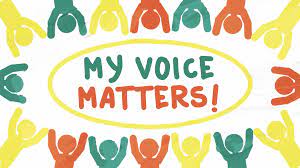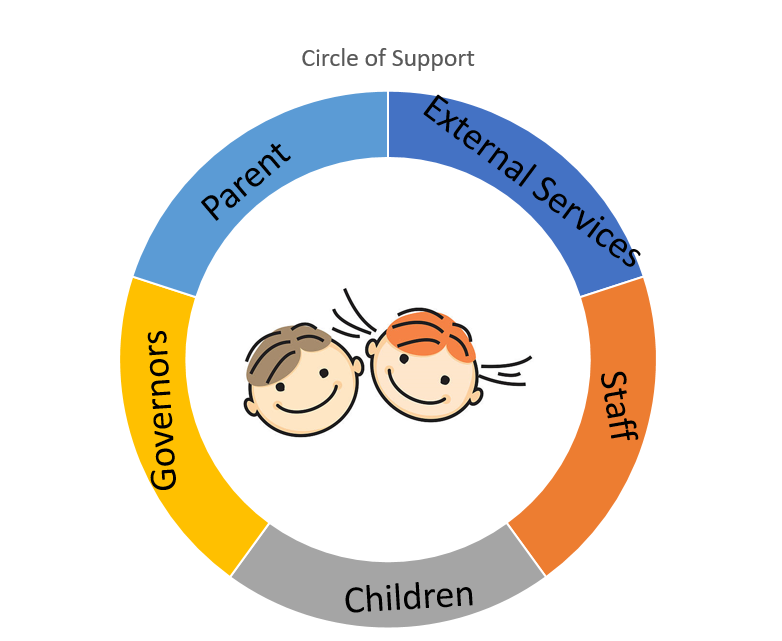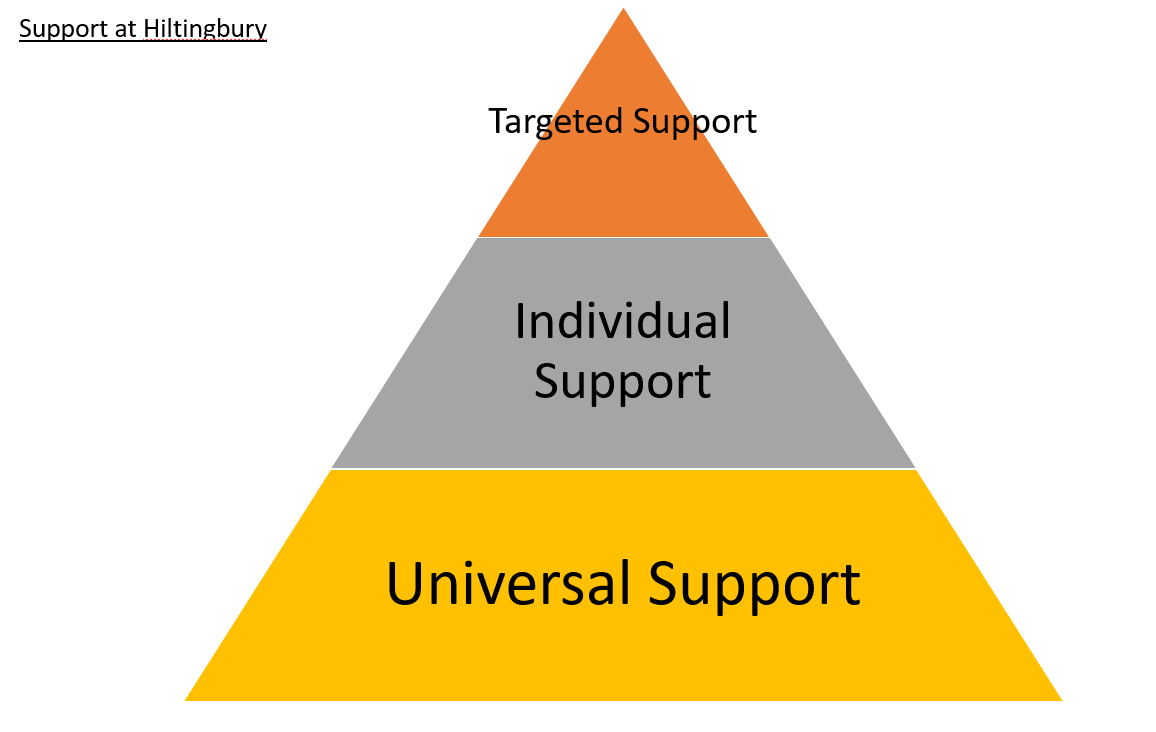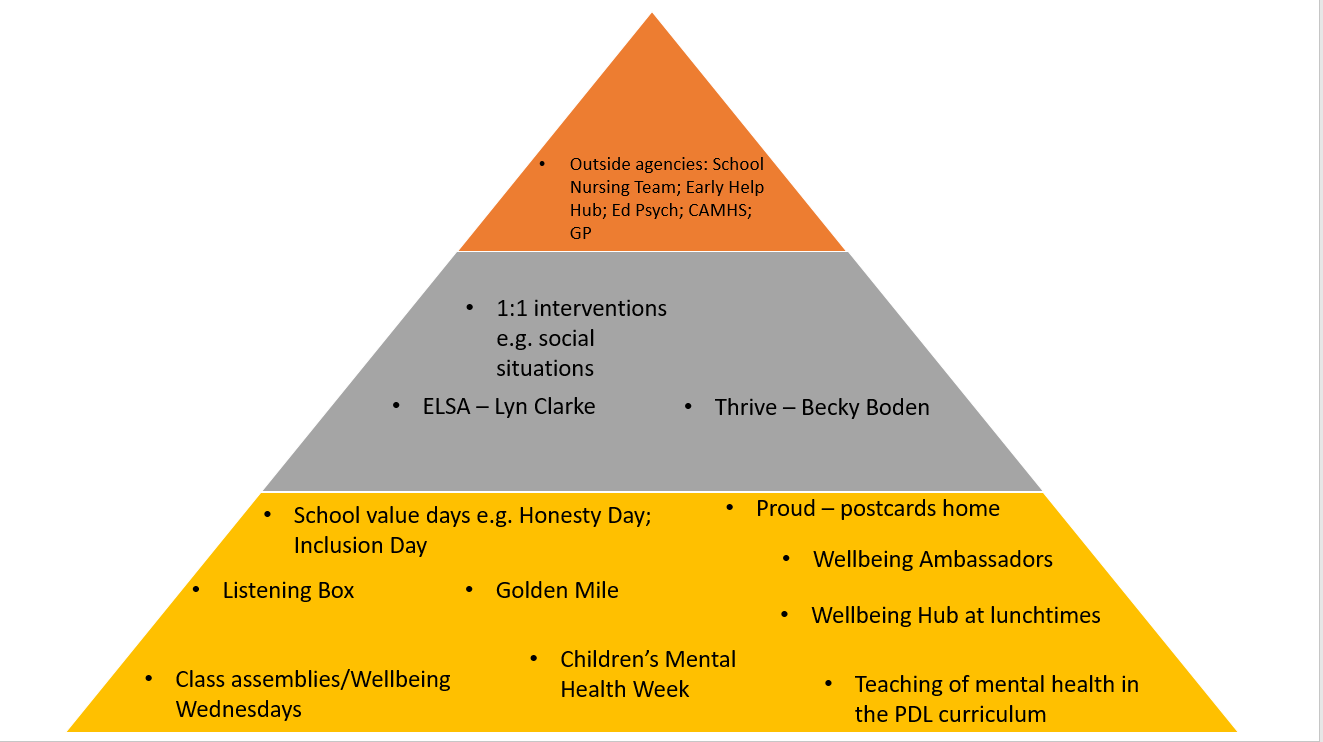Mental Health and Wellbeing
On this page on our website, you will be able to see what we do in school to support the mental health and emotional wellbeing of all of the children at Hiltingbury Junior School. We keep this page updated with what we have been doing in school to support the children throughout the year, including initiatives, activities, celebrations, workshops etc.
You will also find, below in our Wellbeing Hub, a plethora of outside organisations, networks and groups for parents and carers to use to further support children's mental health and wellbeing.
Mental Health Week 5-11 February 
Next week is National Mental Health and Wellbeing awareness week that aims to empower, equip and give a voice to all children and young people. The theme this year is ‘My Voice Matters’.
My Voice Matters is about empowering children and young people by providing them with the tools they need to express themselves. During Children’s Mental Health Week, we want all children to be able to say – and believe - “My Voice Matters.”
With that, we have planned a range of activities to empower and support mental wellbeing from calming Art activities to Class Talent Shows to celebrate and empower pupils.
Please see the attached document below for resources or guidance to use at home.
Mental Health and Emotional Wellbeing - Intent
At Hiltingbury Junior School, we aim to promote positive mental health and well-being for our whole school community: pupils, staff, parents and carers, and recognise how important mental health and emotional wellbeing is to our lives in just the same way as physical health. We recognise that children’s mental health is a crucial factor in their overall well-being and can affect their learning and achievement. Persistent mental health problems may lead to pupils having significantly greater difficulty in learning than the majority of those of the same age.
All children go through ups and downs through their school career and some face significant life events. About 10% of children aged 5 to 16 have a diagnosable mental health need and these can have an enormous impact on their quality of life, relationships and academic achievement.
The Department for Education (DfE) recognises that: “in order to help their pupils succeed; schools have a role to play in supporting them to be resilient and mentally healthy”.
Schools can be a place for children and young people to experience a nurturing and supportive environment that has the potential to develop self-esteem and give positive experiences for overcoming adversity and building resilience. For some, school will be a place of respite from difficult home lives and offer positive role models and relationships, which are critical in promoting pupils well-being and can help engender a sense of belonging and community.
Our role in school is to ensure that they are able to manage times of change and stress, be resilient, are supported to reach their potential and access help when they need it. We also have a role to ensure that pupils learn about what they can do to maintain positive mental health, what affects their mental health, how they can help reduce the stigma surrounding mental health issues and where they can go if they need help and support.
Our aim is to help develop the protective factors which build resilience to mental health problems and be a school where:
all pupils are valued
pupils have a sense of belonging and feel safe
pupils feel able to talk openly with trusted adults about their problems without feeling any stigma
positive mental health is promoted and valued
bullying is not tolerated
In addition to children’s well-being, we recognise the importance of promoting staff mental health and well-being.
We believe that all staff have a responsibility to promote positive mental health, and to understand about protective and risk factors for mental health. Some children will require additional help and all staff should have the skills to look out for any early warning signs of mental health problems and ensure that pupils with mental health needs get early intervention and the support they need.
All staff understand about possible risk factors that might make some children more likely to experience problems; such a physical long-term illness, having a parent who has a mental health problem, death and loss, including loss of friendships, family breakdown and bullying. They also understand the factors that protect children from adversity, such as self-esteem, communication and problem-solving skills, a sense of worth and belonging and emotional literacy.
At HJS, we have a Pastoral Team (Senior Mental Health Leader, SENCO, Designated Safeguarding Team, ELSA practitioner, Thrive practitioner) who:
lead on and work with other staff to coordinate whole school activities to promote positive mental health
provide advice and support to staff and organises training and updates
keep staff up-to-date with information about what support is available
liaises with the PDL Leader on teaching about mental health
are the first point of contact and communicates with mental health services
lead on and makes referrals to services
At Hiltingbury Junior School, we have a supportive and dedicated staff who are committed to supporting the mental health health and emotional wellbeing of all children.

What does the support look like?



https://www.thriveapproach.com/resources/
Thrive is a leading provider of tools and training to help support the social and emotional development of the children and young people they are working with. Thrive work with schools, multi-academy trusts (MATs), local authorities, health and social care professionals and parents and carers.
Please see below some wonderful resources and ideas from Thrive.
Place2Be 
We would like to share the link for Place2Be. Place2Be is a website providing a wealth of support, ideas and understanding from child mental health experts
School Nursing Team - NHS Family Well Being
We have entered another difficult period in the pandemic when we can feel emotionally overwhelmed, including our children. Please do not suffer alone.
The school nursing offices continue to be manned and to offer support and signposting options at this difficult time.
Hampshire Healthy Families website:
http://www.hampshirehealthyfamilies.org.uk
Please refer to the excellent resources attached below. With lots of information including helping our children with their mental health and wellbeing
BBC Mental Health Tool Kit
https://www.bbc.co.uk/programmes/articles/YfRzhXDKSZQxFVn30TlXBj/your-mental-health-toolkit
Young Minds
Please have a look at these valuable resources from Young Minds, a charity fighting for children and young people's mental health, using the link below
Help for parents - Supporting your child during Co-Vid 19
Think Ninja - NHS app
ThinkNinja is a mental health app designed for 10 to 18 year olds. Using a variety of content and tools, it allows young people to learn about mental health and emotional wellbeing, and develop skills they can use to build resilience and stay well. Click on this link to access.

